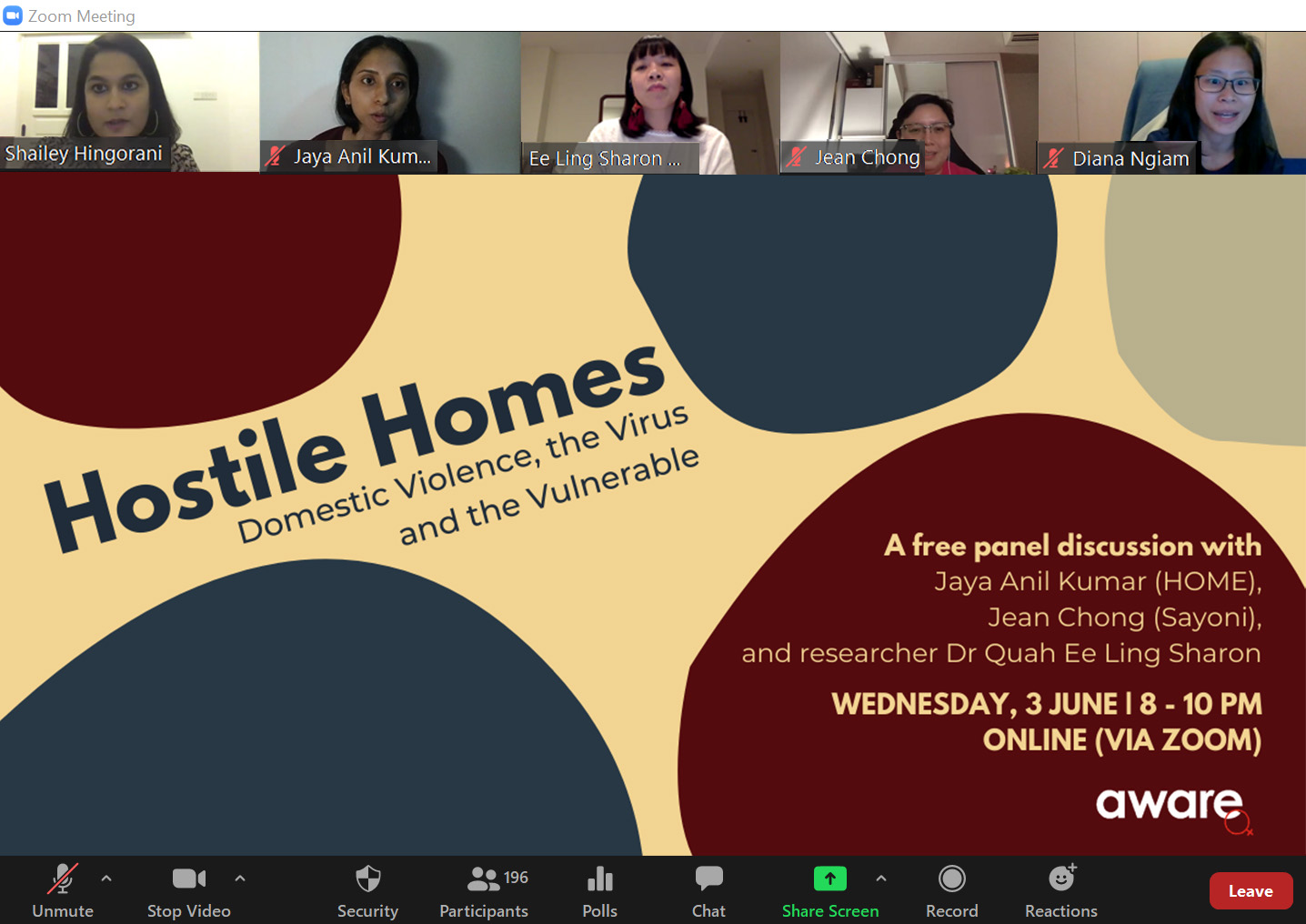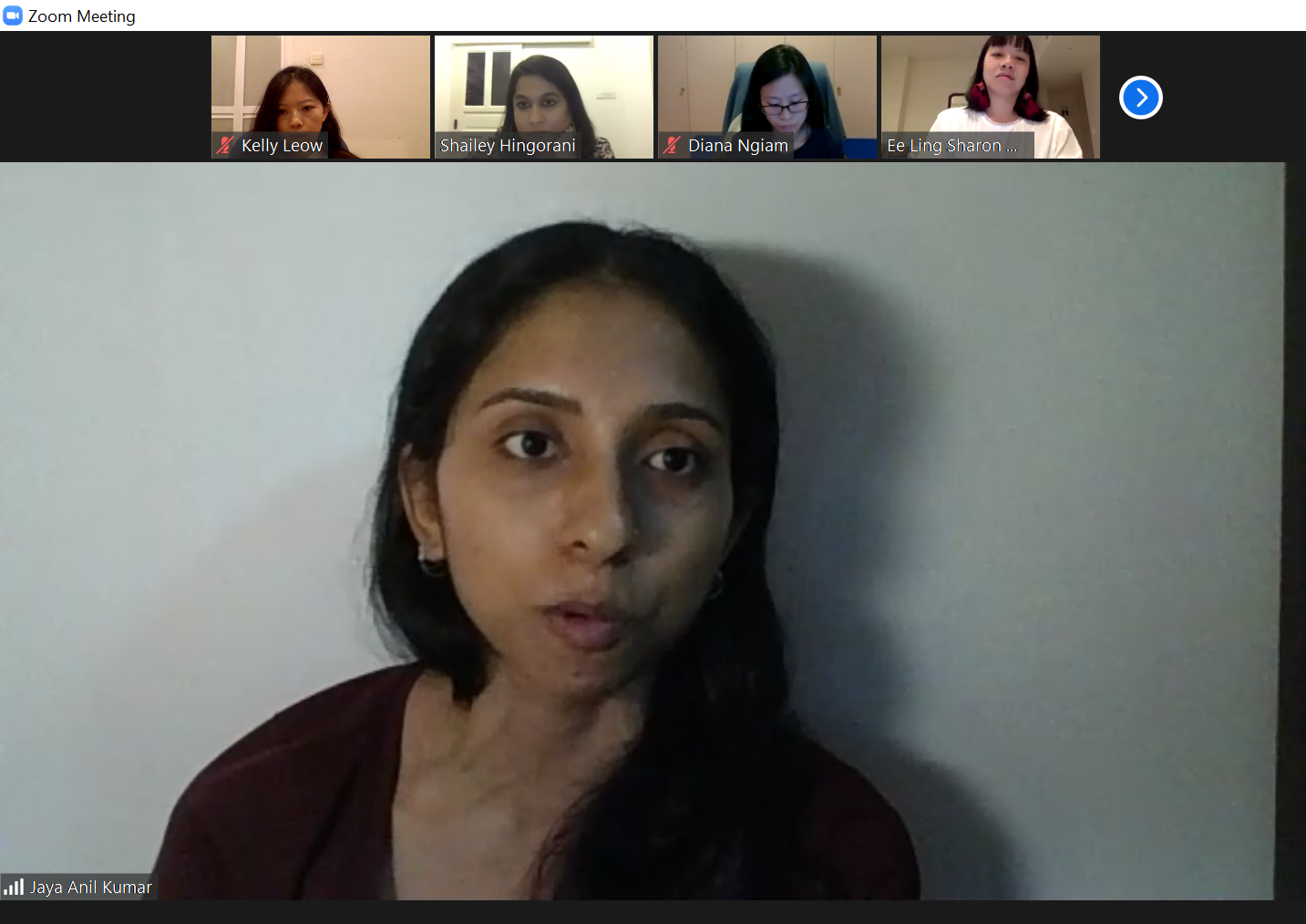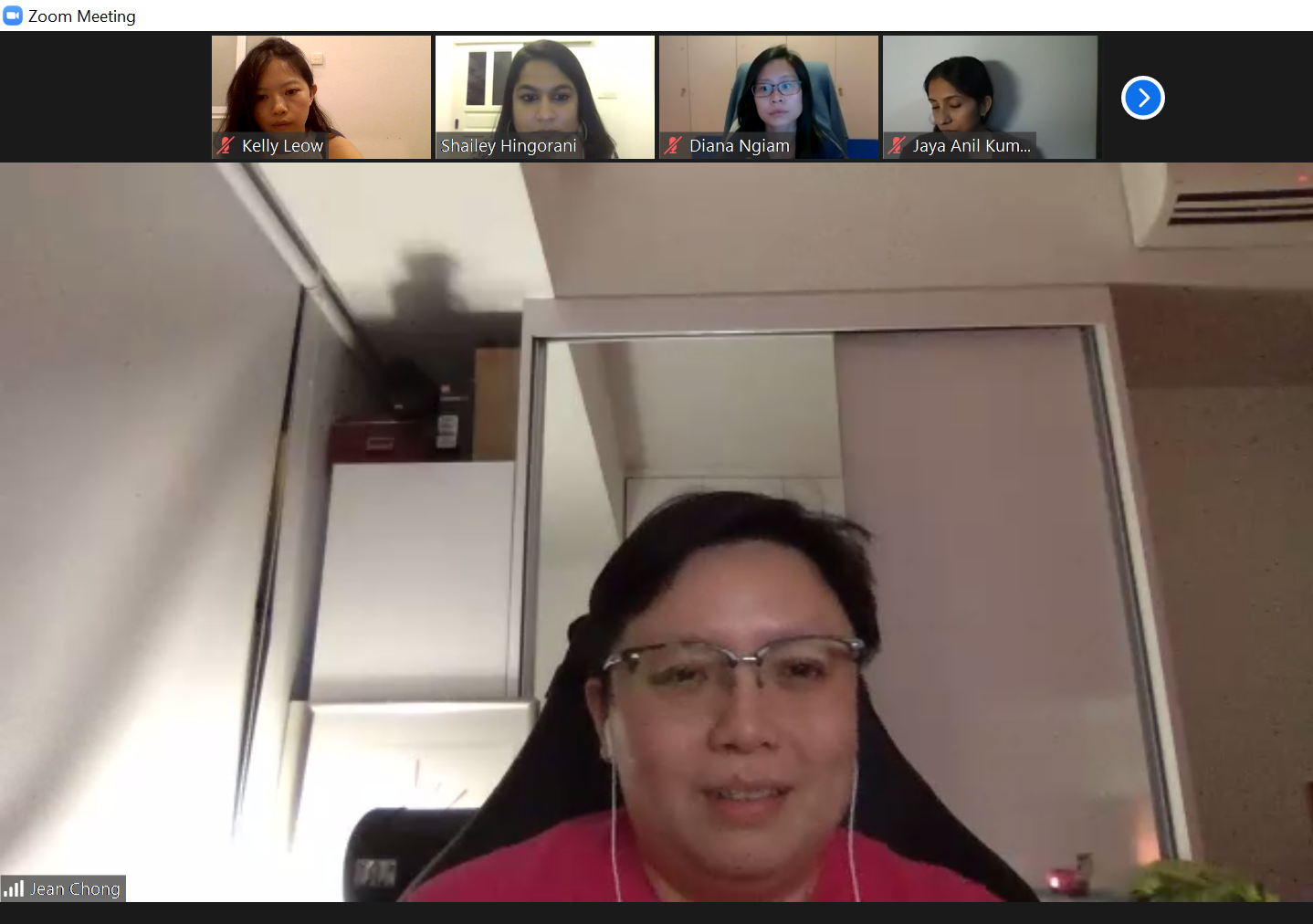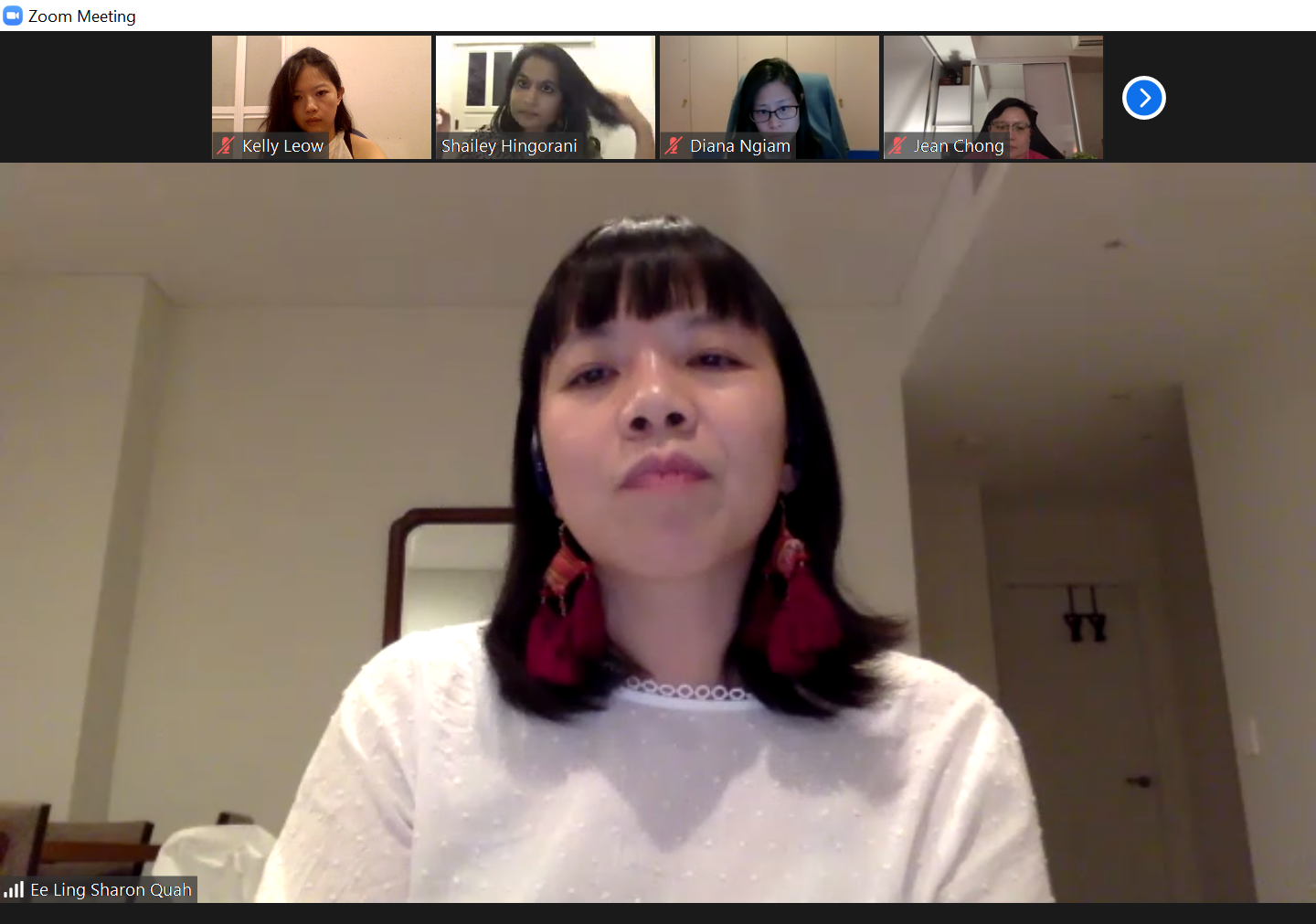-
Advocacy Theme
-
Tags
- Abortion
- Adoption
- Caregiving
- CEDAW
- Disability
- Domestic Violence
- Domestic Workers
- Harassment
- Healthcare
- Housing
- International/Regional Work
- Maintenance
- Media
- Migrant Spouses
- Migrant Workers
- Muslim Law
- National budget
- Parental Leave
- Parenthood
- Polygamy
- Population
- Race and religion
- Sexual Violence
- Sexuality Education
- Single Parents
- Social Support
- Sterilisation
- Women's Charter
A Recap: Hostile Homes—Domestic Violence, the Virus and the Vulnerable
June 9th, 2020 | Events, Gender-based Violence, LGBTQ, Migration and Trafficking, News

written by Saraniyah D/O V Saravanan
What are some common myths about domestic violence?
“We tend to think of domestic violence as spousal violence, but that’s not really true,” said Shailey Hingorani, Head of Research and Advocacy at AWARE, whereas domestic violence can be committed at the hands of intimate partners, parents or other relatives in a household.
“Most Singaporeans perceive [domestic violence] to be physical, and do not note the nuances of it,” Shailey added. She referenced a 2019 study by global market agency Ipsos and United Women Singapore on the perceptions of Singaporeans on domestic abuse: The results revealed that about half of Singaporeans did not take into account the non-physical aspects of domestic violence, such as emotional/psychological abuse and controlling behaviors that damage an individual’s self-esteem and restrict her access to social support, financial freedom and other important areas of life.
Shailey was speaking as the moderator for the online panel discussion Hostile Homes: Domestic Violence, the Virus and the Vulnerable, hosted by AWARE on 3 June 2020. More than 200 attendees turned out on Zoom to watch the event, which invited three experts to explain how domestic violence manifests across different vulnerable communities in Singapore.
Two of the panellists spoke about different migrant communities: Case manager Jaya Anil Kumar from the Humanitarian Organisation for Migration Economics (HOME) elaborated on the types of domestic violence that migrant domestic workers (MDWs) face, while intersectional feminist sociologist Dr Quah Ee Ling Sharon drew upon her research of migrant wives in Singapore. They were joined by Sayoni co-founder Jean Chong, who delved into the lesser-heard experiences of queer women.
Power imbalance
Power imbalance was the common thread uniting all the issues covered by the panelists. In the case of MDWs, HOME’s Jaya expressed that they are vulnerable to domestic violence due to the excessive surveillance and unregulated control by employers. This is a byproduct of the lack of labour protections for MDWs in Singapore, and it places much of their well-being in their employers’ hands. Mandatory social isolation as a result of Singapore’s coronavirus-necessitated circuit breaker has spurred more opportunities for abuse of MDWs.

“If you go out, the police might catch you because of the circuit breaker.” Jaya cited that as an example of the scare tactics sometimes used on MDWs by their employers, and argued that the tactic of restricting movement was a form of domestic violence. Other examples include overwork, disallowing the usage of mobile phones, economic abuse (i.e. withholding and/or shortchanging wages), threats of repatriation and verbal/physical abuse.
The situation is similar for migrant wives, Ee Ling noted, whose somewhat “transactional” marriage contracts put them in precarious positions. A similar notion of control echoes through the expectations placed on these women by their Singaporean husbands and in-laws: that they will be “good wives” in exchange for citizenship, housing and financial support. Ee Ling reported seeing cases in which a migrant wife is “disposed of” by her Singaporean family, and by society, when she is deemed to have lost her productive and reproductive value and a divorce takes place. Migrant wives’ situations are even more fraught when the prospect of separation from their Singaporean children comes into the picture.
As for Sayoni’s Jean, she finds that many in Singapore believe that the violence faced by LGBTQ persons is the same as that of heterosexual individuals. However, a recent survey by Sayoni on LGBTQ persons in Singapore found that more than half of interviewees had experienced domestic violence—far more than the heterosexual population.
“A lot of LBTQ people are not married in the eyes of the law,” said Jean, “hence it’s harder to seek help, especially if it’s help from the authorities.”

Barriers to seeking help
The challenges faced when a victim of violence tries to seek help—e.g. inefficient or ineffective administrative processes—can themselves become a form of traumatising violence.
For migrant wives, this “administrative violence” (a concept discussed by trans scholar Dean Spade and cited by Ee Ling) looks like a population classification system, under which non-Singaporeans have limited access to resources and are therefore debilitated.

Building upon this, Jaya added that it is common for MDWs to be met with disbelief when they seek help from Singapore’s authorities.
According to Jean, societal and familial hostility towards LGBTQ people, as exemplified by Section 377A of the Penal Code, leads to a tone-deaf official approach to serving them. She also mentioned the jarring lack of trained individuals staffing the already limited local support networks for the LGBTQ community.
In short, administrative violence can cause survivors of abuse to internalise their experiences, rather than identifying them as unjust and seeking help. It’s all the more difficult, therefore, to escape dangerous situations.
Shifting the framework
What can be done to better help these vulnerable populations?
Panellists agreed that people involved in administrative processes should undergo better sensitisation training to ensure they adequately serve all demographics. There is a need for more resources to educate the public on the nuances of domestic violence, and for a bigger pool of relief and resilience funds to address the gaps that many fall into. Increased access to legal assistance is essential as well.
Ee Ling also called for a shift in mindset: Instead of only thinking about perpetrators as individual abusers and providing remedies to “fix” individuals, we should consider perpetrators as systems and structures—such as the global hierarchy of nations, and what she called “global gender (dis)order”, patriarchy, class, race and heteronormativity.
Lawyer Diana Ngiam (Associate Director of Quahe Woo and Palmer LLC) was present at the panel. She spoke up at this point about some possible legal avenues for survivors of domestic violence to seek redress. These included the Protection from Harassment Act (under which an individual does not have to be in the same household, or carrying out a sexual relationship, to be considered in an intimate relationship and eligible for protection) and Section 73 of the Penal Code, which covers abuse of domestic workers.
The panelists concluded by emphasising that these efforts can only be realised when public discourse acknowledges and empathises with these communities, affording them their rightful dignity and respect.
“As a society,” said Ee Ling, “we need to step back and reflect on how we treat people who do not fit into the model citizenship that the state expects us to embody.”



